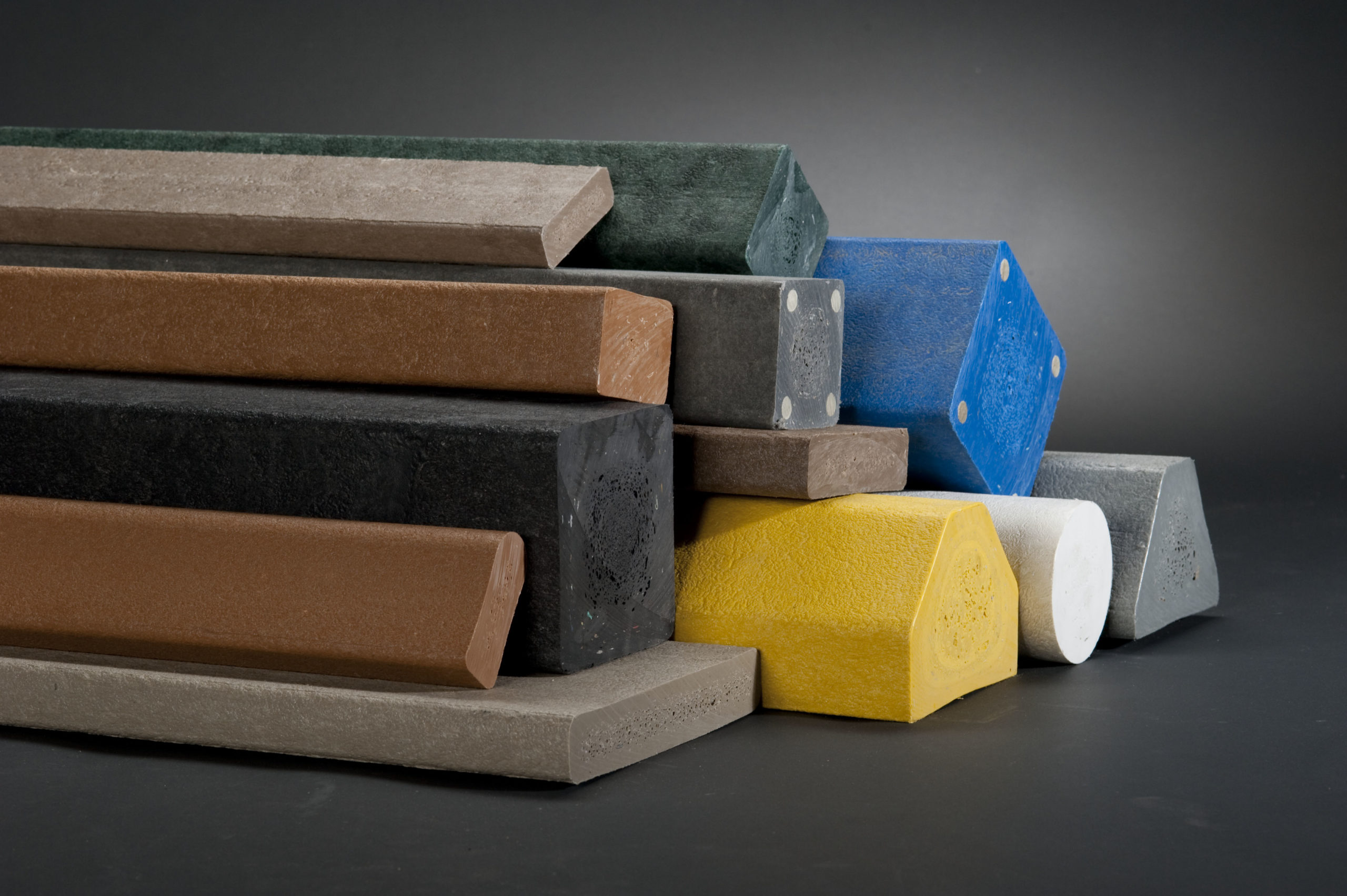Why Composites are Reinventing Building Materials
Discovering the Uses and Advantages of Recycled Composites in Modern Industries
In today's swiftly evolving commercial landscape, the application of recycled composites has actually garnered increasing focus for its prospective to redefine conventional manufacturing practices. The amalgamation of recycled products with innovative composite innovations presents an encouraging avenue for enhancing sustainability, strength, and cost-efficiency throughout different fields. As markets look for innovative options to address environmental problems and improve operational performances, the incorporation of recycled composites emerges as an engaging choice. This change in the direction of lasting practices not just straightens with global conservation initiatives yet likewise uses a myriad of benefits that hold the secret to shaping the future of contemporary manufacturing approaches.
Ecological Benefits of Recycled Composites
The use of recycled compounds in modern-day sectors offers significant environmental advantages, adding to the decrease of waste and the conservation of natural deposits. By incorporating recycled composites right into making processes, sectors can reduce their dependence on virgin materials, therefore decreasing the amount of waste generated and the energy needed for removal and manufacturing. This shift towards using recycled composites helps in drawing away products from garbage dumps, reducing the burden on waste administration systems, and lowering greenhouse gas emissions related to conventional manufacturing practices.
Furthermore, the usage of recycled composites advertises the conservation of natural deposits such as hardwood, minerals, and water, which are commonly depleted via the removal and handling of resources (composites). By extending the life-span of materials via recycling, markets can aid protect ecosystems and biodiversity by reducing the need for new sources. Generally, the fostering of recycled composites in contemporary industries plays a critical duty in advertising sustainability and reducing the environmental impact of manufacturing processes
Improved Durability in Product Production
With a concentrate on long life and robustness, incorporating recycled compounds right into product production procedures enhances longevity and sustainability. By using recycled compounds, makers can produce items that are not only strong however likewise immune to tear and wear, making them perfect for long-term use in numerous markets. The combination of different materials in recycled composites can usually lead to boosted toughness and durability compared to conventional products, supplying a cost-effective service for generating resilient goods.
One of the essential advantages of using recycled composites in item manufacturing is the ability to tailor the product residential properties to satisfy particular resilience requirements. By adjusting the composition and production strategies, manufacturers can personalize the recycled compounds to hold up against rough ecological problems, heavy tons, or regular use without jeopardizing on performance. This flexibility in layout and manufacturing allows for the production of extremely sturdy products that keep their honesty over time, decreasing the requirement for constant substitutes and ultimately adding to a much more sustainable manufacturing procedure.
Cost-Effectiveness and Economic Advantages
Incorporating recycled compounds right into item manufacturing not only enhances resilience and sustainability yet also uses considerable cost-effectiveness and economic benefits. Using recycled compounds can cause decreased material prices as recycled products are often cheaper than virgin materials. Additionally, reusing composite materials can reduce garbage disposal costs and decrease the demand for landfill area, adding to total cost savings for industries.

Technology and Design Adaptability With Recycled Composites
Making use of recycled composites in contemporary markets supplies exceptional chances for development and style versatility. By integrating recycled materials into composite manufacturing processes, companies can press the borders of conventional design constraints and explore new possibilities. The convenience of recycled compounds enables the production here are the findings of intricate forms and frameworks that might not be possible with traditional products.
One of the vital benefits of recycled composites is their capacity to be formed right into different types, providing designers the flexibility to try out unique sizes and shapes. composites. This adaptability opens a globe of innovative opportunities, enabling the growth of light-weight yet resilient products that satisfy the certain requirements of different sectors
In addition, making use of recycled compounds advertises lasting methods and sustains the circular economy by minimizing waste and minimizing the ecological influence of making processes. This concentrate on environment-friendly layout services lines up with the expanding fad towards sustainability in contemporary industries, making recycled compounds a valuable resource for cutting-edge and forward-thinking business.
Applications Throughout Different Industries
Recycled composites discover impactful and diverse applications throughout a vast variety of sectors as a result of their unique residential or commercial properties and sustainability benefits. In the vehicle market, these products are significantly used for producing light-weight and resilient components, enhancing fuel effectiveness and lowering carbon discharges. The aerospace industry gain from recycled compounds in the production of aircraft components, where the products' strength-to-weight ratio is important for making certain safety and security and efficiency. In building, these compounds are utilized for producing solid yet eco-friendly building products, contributing to lasting facilities advancement. The renewable resource field utilizes recycled composites in wind generator blades and solar panels, harnessing their stamina and resistance to harsh ecological conditions. In addition, the aquatic sector makes use of these products for making watercraft hulls and elements, using improved resilience and deterioration resistance. anchor The convenience and sustainability of recycled compounds make them important across different markets, driving innovation and environmental stewardship. composites.
Verdict
In conclusion, the utilization of recycled composites in contemporary markets supplies significant ecological advantages, enhanced resilience in product manufacturing, cost-effectiveness, and financial advantages. The use of recycled compounds enables for technology and style versatility throughout different sectors. Overall, the fostering of recycled compounds offers a sustainable and useful service for meeting the needs of the market while also minimizing ecological influence.

One of the crucial benefits of using recycled compounds in product manufacturing is the capability to tailor the product homes to meet specific durability needs. Using recycled composites can lead to lowered material prices as recycled products are link typically much less costly than virgin materials. The aerospace sector advantages from recycled compounds in the production of aircraft components, where the materials' strength-to-weight ratio is crucial for guaranteeing safety and security and performance.